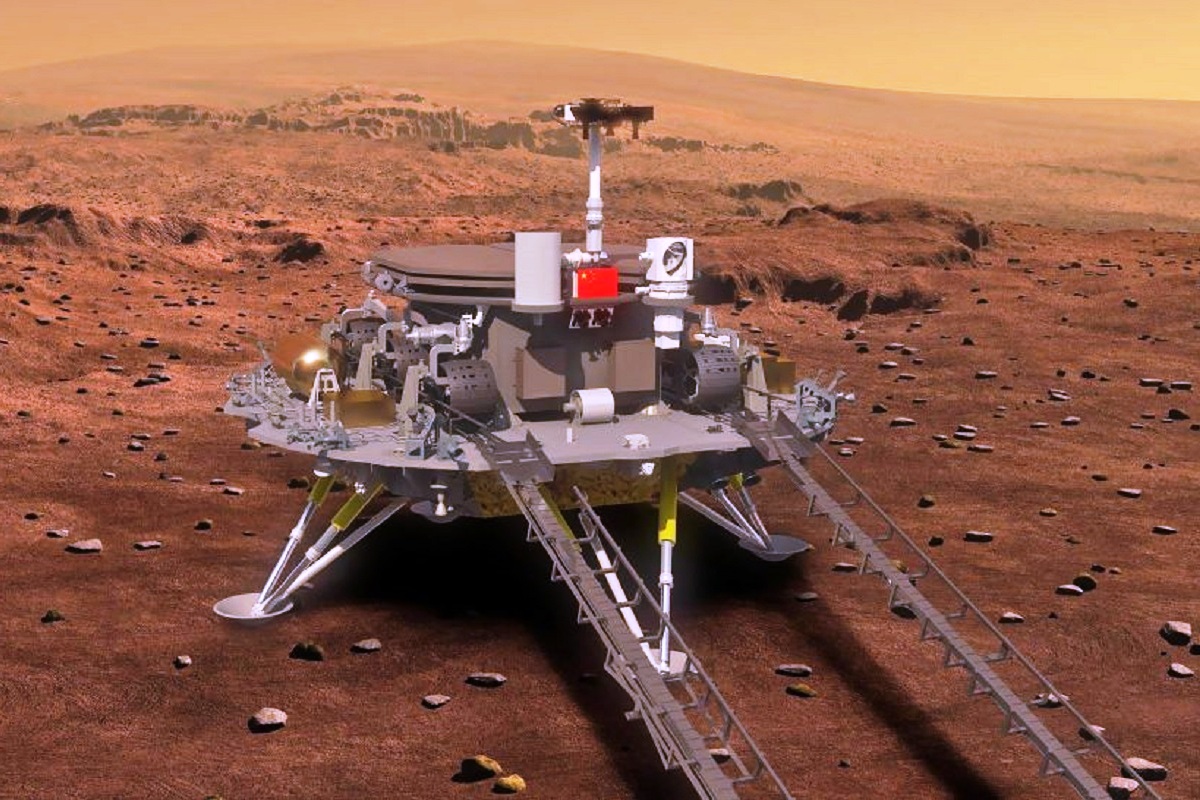Isro Mars Orbiter Chief ambitious about Mission Venus
The first ever venture into Venus is part of the country's space exploration, claimed the topmost ISRO scientists here on Wednesday.
Landing on Mars has always been a daunting challenge but China would have had confidence going into the procedure not the least in view of the competence it has shown in its space endeavours.

(Image: Twitter/@MagScientia)
It sure has been a phenomenal achievement on the part of China, which has successfully landed a spacecraft on Mars. The six-wheeled Zhurong robot was targeting Utopia Planitia, a vast terrain in the planet’s northern hemisphere. The vehicle used a combination of a protective capsule, a parachute and a rocket platform to make the descent.
The achievement is remarkable not the least because of the intricate nature of the task. China’s singular rival, America has thus far mastered the technological craft of landing on Mars. Not that other countries have not tried; unfortunately, they either crashed or lost contact soon after reaching the surface.
Advertisement
“You were brave enough for the challenge, pursued excellence and placed our country in the advanced ranks of planetary exploration,” President Xi Jinping said in his congratulatory message. With remarkable promptitude, warm compliments have also been advanced by Thomas Zurbuchen, the head of science at the US space agency (Nasa).
Advertisement
“Together with the global science community, I look forward to the important contributions this mission will make to humanity’s understanding of the Red Planet,” he said. The Russian space agency, Roscosmos, said the success augured well for its future cooperation with China. It took 17 minutes to unfold its solar panels and send a signal back to Earth. Zhurong, which means God of Fire, was carried to Mars on the Tianwen-1 orbiter, which arrived above the planet in February.
The mission was calibrated to the extent possible. It surveyed Utopia, taking high-resolution images to pinpoint the safest place to put the rover down. The aim with all such ventures is to pick a spot that is devoid of imposing craters and where the landscape isn’t covered with large boulders. Chinese engineers had to follow the landing effort with a time lag.
The distance to Mars is 320 million kilometres. Which would mean that radio messages take almost 18 minutes to reach the Earth. To use the terminology of science, every stage of the Zhurong robot’s approach to the surface would have been conducted “autonomously”. Landing on Mars has always been a daunting challenge but China would have had confidence going into the procedure not the least in view of the competence it has shown in its space endeavours.
The narrative is spectacular. It has been putting rovers on the Moon, and bringing lunar samples back to Earth. This month it launched the first segment of a space station above the planet. Saturday’s success would be an enormous fillip to the country.
Dean Cheng, a research fellow in Chinese political and military affairs at the Washington-based think-tank, The Heritage Foundation, said: “From the Chinese perspective, space benefits Chinese diplomacy, Chinese technology; it’s a great advertisement; it reinforces the legitimacy of the Chinese Communist Party to its own people”.
The landing on Mars has been as much a scientific achievement as it has been a political one.
Advertisement